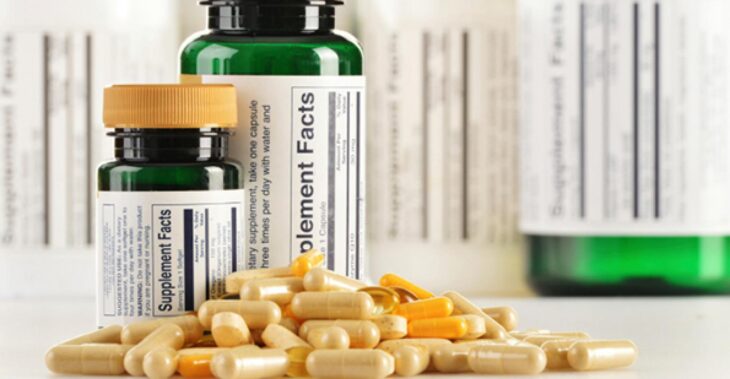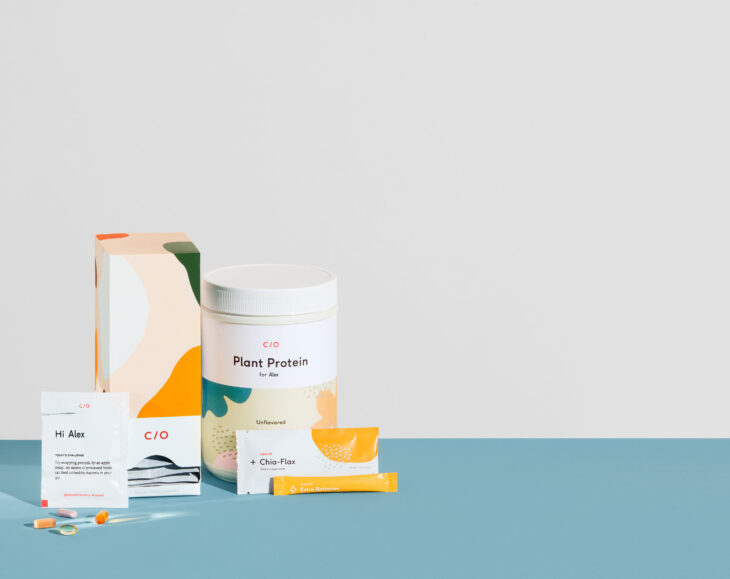In many countries, including the US, the safety and effectiveness of dietary supplements aren’t evaluated by the official drug administration. That means that it’s easy to sell herbal remedies, probiotics, vitamins, and other ineffective beauty supplements. Or even harmful.
That’s not to say that all supplements are scams: Scientific research has shown that the right combination of ingredients can have massive benefits for your health and beauty.
Supplements can be an ally on the way to smoother hair, clearer skin, stronger muscles, or a more focused mind. They provide nutrients that are often hard to get through a regular diet.
Unfortunately, there are countless supplement scams out there. So many of which you’re bound to come across them when you’re searching for the right product to fit your unique nutritional needs.
Here are three reliable hacks to avoid misinformation, deceptive marketing, and questionable products.
Contents
1. Check Your Sources

Source: newhope
If you’ve found a product that sounds amazing, but you’re not sure if it’s the real deal, check where you heard about it.
Frauds trying to sell their bogus supplements use both email campaigns and websites to sing the praises of their product. Often, websites are designed to look like real news and magazine sites.
In most cases, these sources also feature fabricated testimonials, fake endorsements from doctors, and fictional clinical studies.
Luckily, there are some straightforward ways to find out if what you’re looking at is fake. Sometimes, it’s enough to Google a product name for it to pop up in an article about supplement fraud, or amidst angry reviews by scam victims.
Look closely at the language of the emails or the websites praising the product. Basic grammar and vocabulary mistakes are big red flags. They’re sure signs that scammers from abroad are trying to get at your cash – and not even putting in enough effort to run a spell-check.
Another warning sign in the language is an overabundance of jargon. Scammers often cram as many medically-sounding terms into the text as possible, to make it sound superficially legitimate.
Beyond that, you can run comparisons of reviews between different sites, do a background check on the companies, or run a search on the clinical studies mentioned in the text, to see if they took place.
2. Beware of Free Trials

Source: harvard
The product you’re looking at offers a free, no-risk trial. You might as well give it a go and see what it does for you, right?
Better not. Scams like this offer to send you free samples, at only the cost of shipping. Their main aim in this is to get hold of your credit card information – and go wild with it.
In some cases, people just get charged the full price of the product. In others, victims are automatically enrolled in long-term subscriptions to phony supplements and end up losing hundreds of dollars.
These catches are buried in the fine print of the terms and conditions which – if we’re being honest – hardly anybody ever reads. But if you want to read the catches, you can read more about it at acneresearch.org.
The bottom line? If the product you’re looking at offers one of these enticing free trials, give it a pass. And keep your credit card info safe.
3. Don’t Be Fooled By Miracle Promises

Source: takecareof
Does this amazing supplement cure the cystic acne that’s plagued you for years – in just one week?! Yeah, right.
If it sounds too good to be true, it probably is.
Research indicates that while supplements can be super effective in improving the health of your hair, or the smoothness of your skin, it takes some time for positive effects to appear.
Even if you’re taking the supplements daily, your body needs weeks or even months to metabolize enough of the new nutrients to make a visible difference. That means that any promises of quick fixes in supplement ads are invariably fake.
The same thing goes for promises of effects that are not just instantaneous, but also all-encompassing.
If a product promises to completely fix zit-ridden skin and make it glow instead, transform thin, dry, brittle hair into a voluminous and swoon-worthy mane, knock a few stones off your hips in the process, and generally get you ready to compete in the next season of America’s Next Top Model, you’re looking at a scam.
Such over-the-top promises exploit the insecurities that most of us struggle with – and the craving for a quick and simple fix.
4. Always buy from trusted companies

Source: sanescohealth
The one thing that you have to take a lot of care into is buying your beauty products from trusted companies. This is because multinational companies have the budget to perform complete research and development on their products, which makes them a little bit trustworthy in the market.
There are new companies in the market every day, but it does not mean that they have done the proper research and development and have passed through the right channels to get it certified by the authorities.
But even though you buy from reputed companies, make sure to do your proper research when you go to buy a product. This is going to ensure that you are only buying the products that are going to benefit you and your skin.
Another benefit of buying from a reputed company is that even if you find something that does not meet their standards, you can always find someone that is going to answer your queries, which makes it so much better than some company that does not even exist out of the product that is in your hand.
The Bottom Line
Beauty supplements can be an amazing asset in improving your health and your looks. But picking the right supplement can feel like searching for the needle in a scam-infested haystack.
Doing some background research on products you’re considering, and being aware of red flags like lousy language, ‘free’ trials, and miracle promises, goes a long way to leave fraudsters standing in the cold. And to get you the right supplement to help you glow up.
